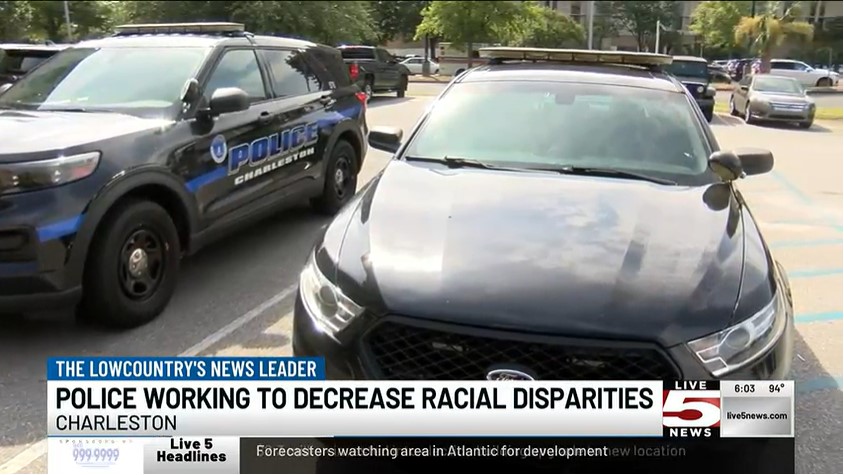By Molly McBride, WCSC
The Charleston Police Department says it has made big changes in the way it collects data to help eliminate racial disparities in its policing.
Those changes followed the 2019 Racial Bias Audit.
“If you can’t measure the outcomes that your officers are in the community creating, then you don’t know what they’re doing, and you can’t evaluate it,” Jill Eidson, the Director of Procedural Justice and Research for the Charleston Police Department, said.
The audit produced 71 recommendations that fell under five categories:
- Community policing
- Complains
- Personnel practices
- Traffic
- Use of Force
The department is working to complete its final recommendation, which is a third-party review.
The department now requires officers to complete a field contact card describing the nature of the interaction and characteristics of the citizen each time they make a “proactive stop,” Eidson said.
The department defines a “proactive stop” as a stop that was not as a result of a call for service.
Police officials said before this policy change, there were general instructions to complete contact cards, but the audit revealed that supervisors interpreted these instructions in different ways.
Eidson said officers are also now required to be more extensive about the information they report related to uses of force.
“It allows for more targeted analysis of the types of forces that were used on which people,” Eidson said.
In addition, she said the department now keeps body-worn camera footage for 400 days. Before the audit, it was kept for two weeks.
“That ensures that any complaints that come in after that two-week period, there will be resources that the internal affairs office would be able to review,” Eidson said.
Leaders of the Charleston Area Justice Ministry said they believe these policies will help data collection moving forward.
“I am hopeful that we will proceed and bring forward a more equitable community, especially around policing,” CAJM Co-President the Rev. Dr. Byron Benton said.
However, he said CAJM is interested in data from before, and during the audit as well.
“How can we measure impact if we don’t have the original marker?” Benton said. “We need to see what the numbers say and work with the numbers, because they tell the truth.”
When asked about the challenges Charleston Police faced producing data that CAJM has asked for, Eidson said there are limitations with their data collection systems.
“We’re relying on systems that were built for a certain purpose, and as changes evolve over time in terms of the questions that communities want to ask, a lot of the times the systems don’t keep up with the questions,” Eidson said.
Benton said after some back and forth on timing, they’ve been able to move forward with the department and have set a date for a community forum to review that data on Sept. 18.
The time and location of the forum has not yet been decided.
View the original story here.






